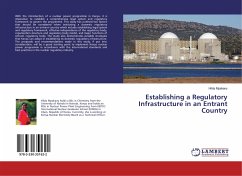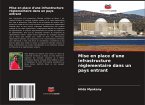With the introduction of a nuclear power programme in Kenya, it is imperative to establish a comprehensive legal system and regulatory framework to govern the programme. This study has outlined key factors that should be considered when instituting a domestic regulatory infrastructure in an entrant country which include establishing legal system and regulatory framework, effective independence of the regulatory body, organization structure and regulatory body model, and major functions of entrant regulatory body. The study also demonstrates possible strategies that Kenya can adopt in establishing its domestic regulatory infrastructure. The proposals and recommendations made in this study, if put into consideration, will be a good starting point to implement Kenya nuclear power programme in accordance with the international standards and best practices in the nuclear regulatory industry.
Bitte wählen Sie Ihr Anliegen aus.
Rechnungen
Retourenschein anfordern
Bestellstatus
Storno








